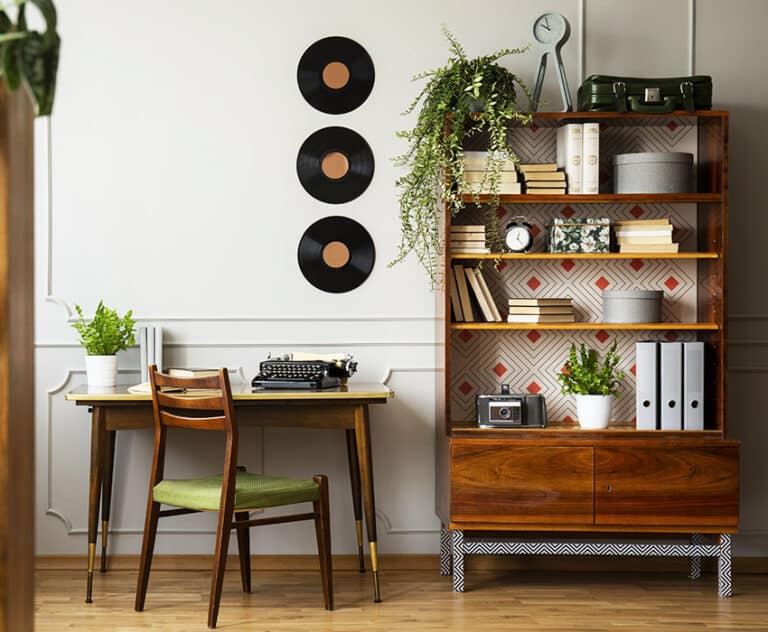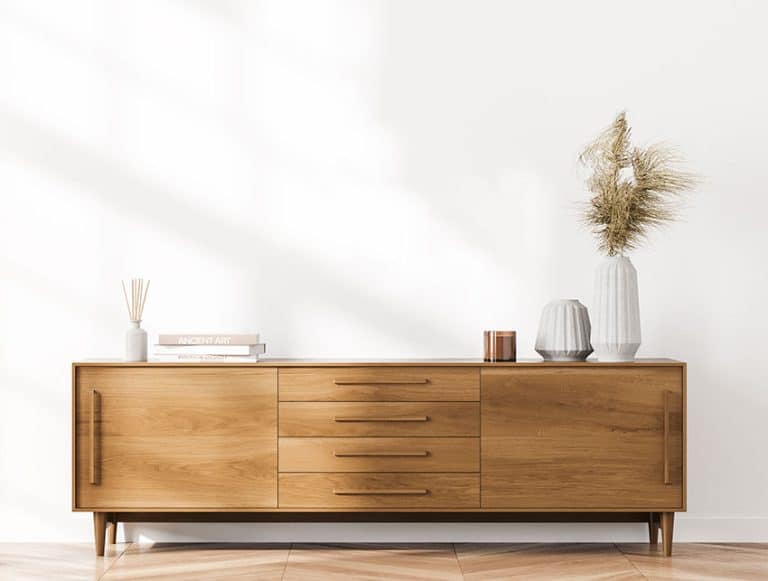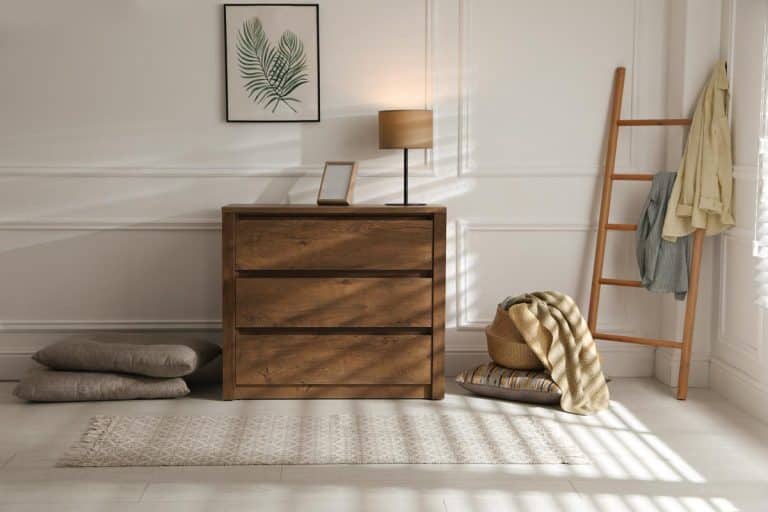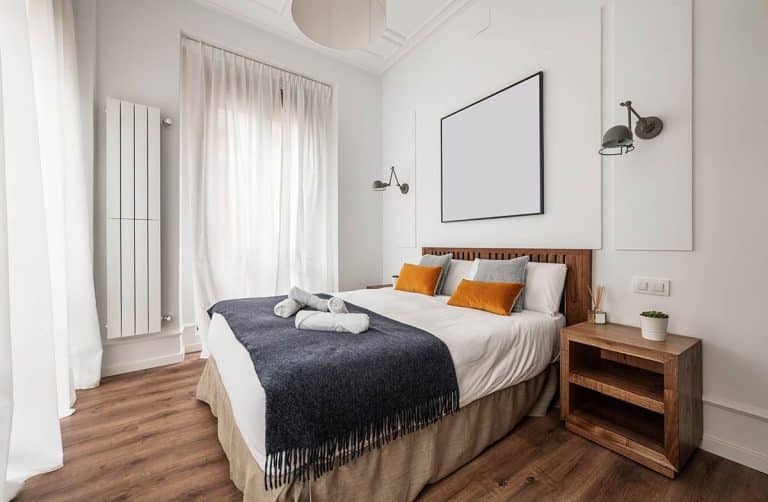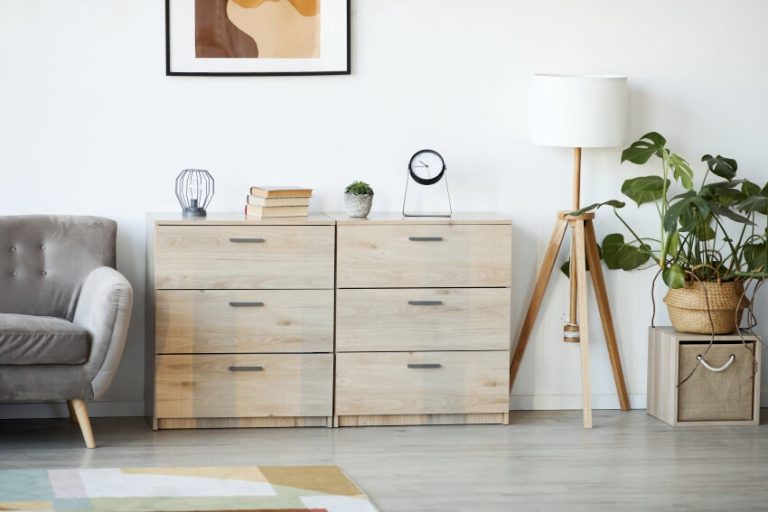21 Stylish Types Of Coffee Tables: With Designs, Materials & Leg Types
Coffee tables have been an essential feature in Western living spaces for generations. They have progressed from small tables to some of the most sophisticated structures seen in houses today. Despite this, most coffee tables have a similar collection of parts.
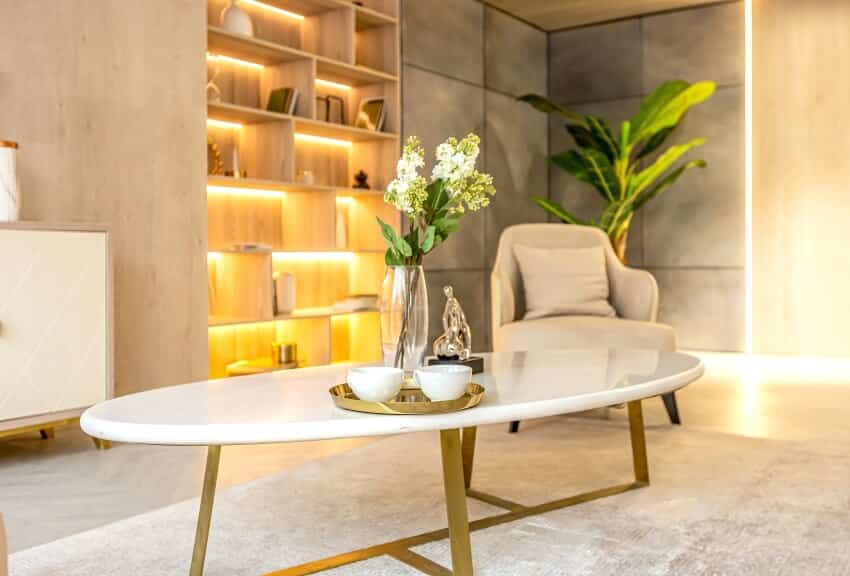
When selecting a coffee table for your home, the width and complexity of options available could be overwhelming; thus, we are here to highlight the different styles, designs, leg structures, and some tips about choosing a coffee table. Let us begin!
Coffee Table Styles
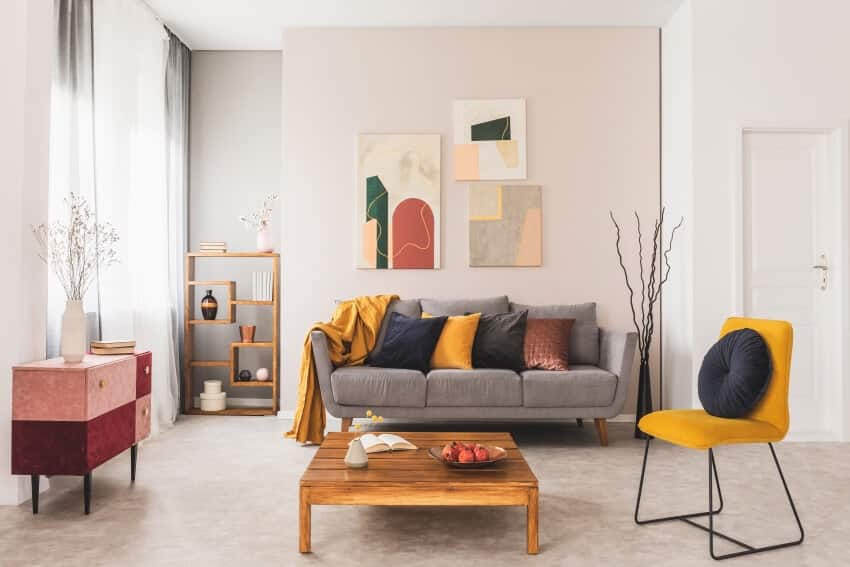
In the realm of coffee tables, the full effect of innovative style has been released. And that is where we delve into one-of-a-kind and high-quality tables that may offer a stunning centerpiece to any living area. We start with more familiar styles before venturing into uncharted aspects.
Traditional
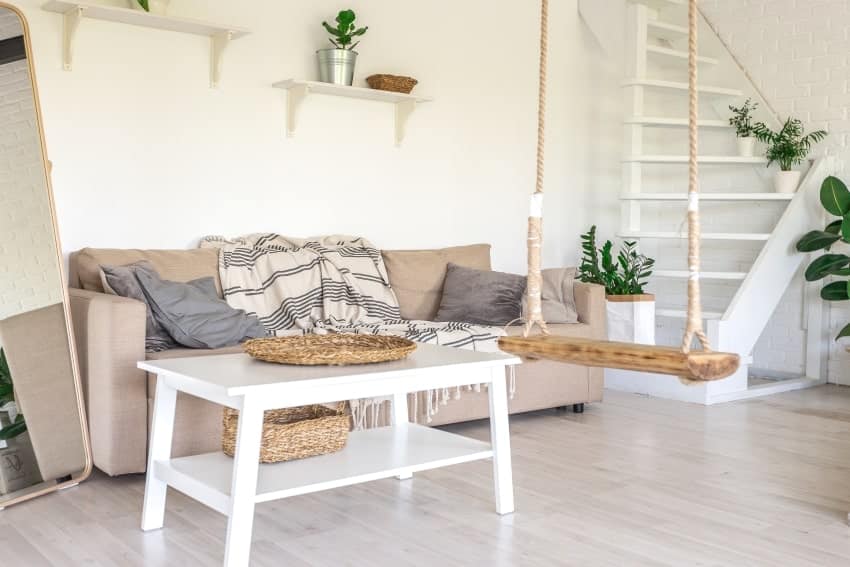
To this very day, traditional coffee tables are probably the most prevalent. Their appeal is unquestionably timeless, with a style that dates back a hundred years. Traditional tables are generally made out of carved wood and have a rectangular or oval tabletop surface.
Contemporary
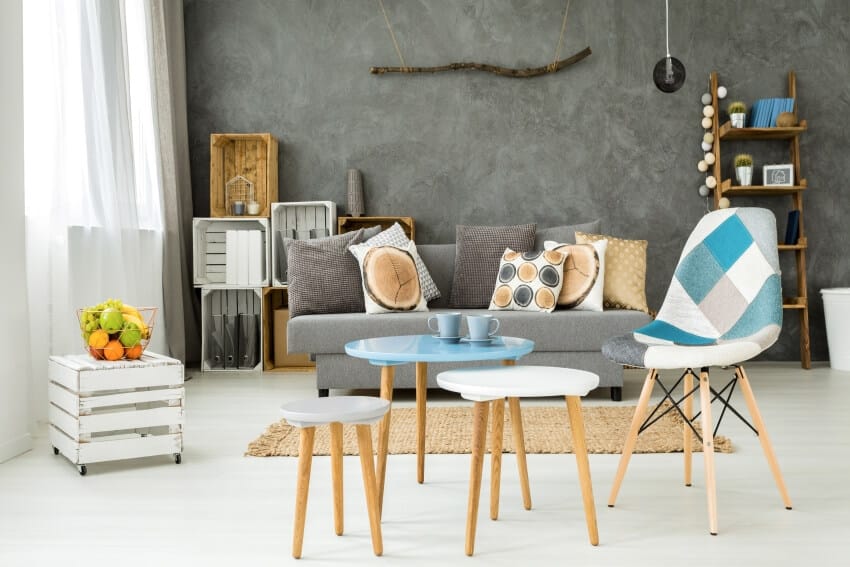
Contemporary is an expansive descriptor that encompasses a variety of stylistic criteria. In general, it refers to any furniture that is made and styled ‘at the moment,’ conveying a modern aesthetic with fresh and unique elements.
Customarily, contemporary coffee tables feature a revolutionary design, with a pair of wedge-shaped ottomans detachable from the primary coffee table framework.
Modern
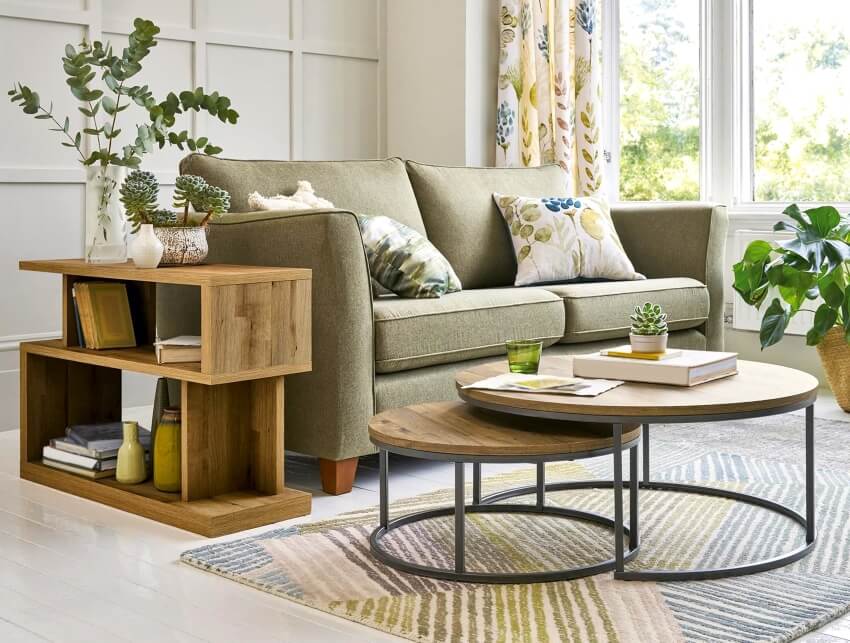
Modern is a word that typically refers to a subset of 20th-century style concepts, ranging from the Art Deco and Bauhaus developments through mid-century fashion. The modern style frequently promotes coffee tables that feature simplicity, minimalistic lines, and the integration of practical and aesthetic purposes.
Rustic
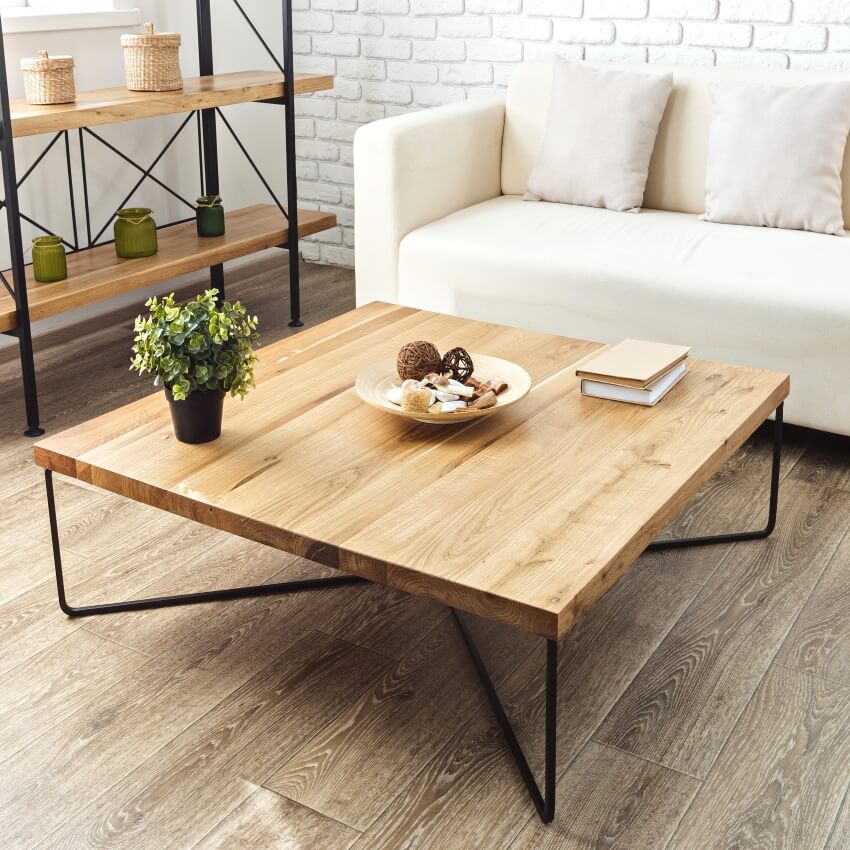
Rustic style depicts the countryside in ancient periods. Oftentimes, the material is made out of wood. Rustic coffee tables are also sculpted in more subtle patterns than modern or traditional styles. Some models include brass fittings, giving the piece an impression of grandeur.
Vintage
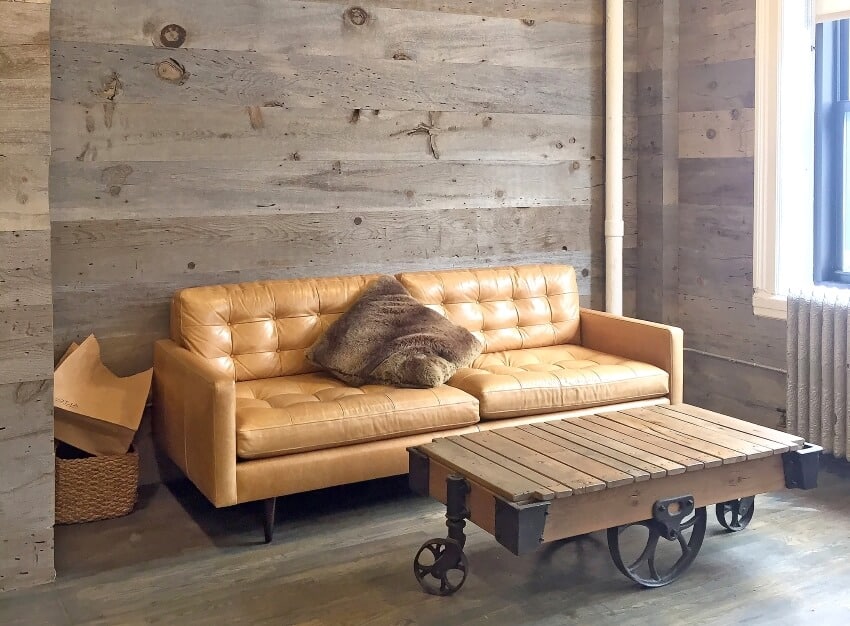
This is a coffee table style that intends to evoke uniqueness, usually odd style concepts from the past. Vintage furniture, which may include reused materials such as registration plates or reclaimed wood, will have a quirky, classic, one-of-a-kind appearance that complements other vintage objects.
Novelty
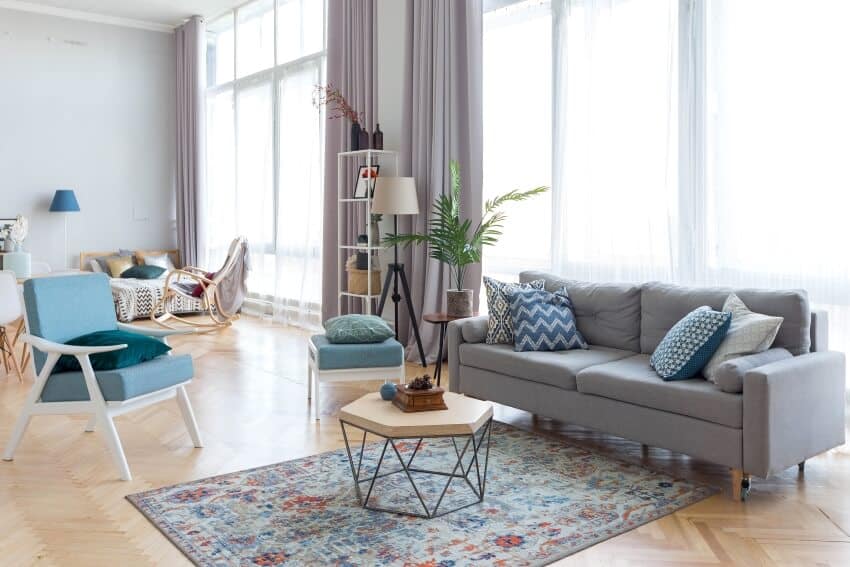
Another very broad concept in the world of coffee table style is novelty. These designs can take any shape, from a glass pyramid to soccer-themed components. The distinguishing feature is that the piece has a prominent feature differentiating it apart from the actual material and form itself.
Stackable
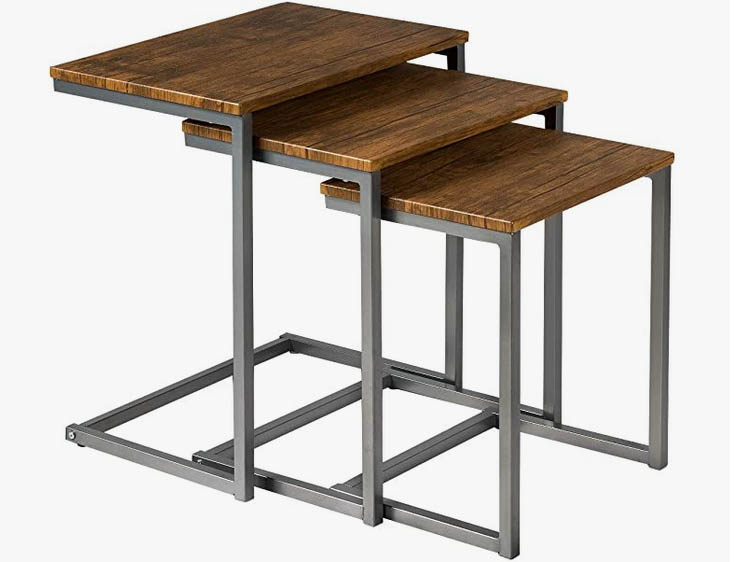
Stackable coffee tables have been available for quite some time. They have become well-known since they are not only stylish but also incredibly useful, featuring 3-in-1 coffee tables.
Foldable
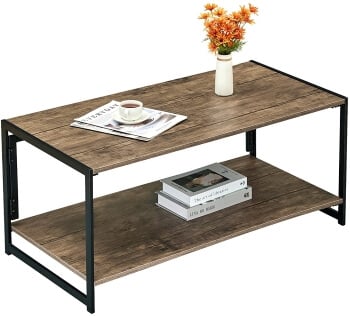
Foldable coffee tables are practical and useful for space-saving. They are very convenient, versatile, lightweight, and mobile. When they are not in use, you can easily store them in the storage area to save space. Furthermore, these foldable pieces are also known for their longevity.
Coastal
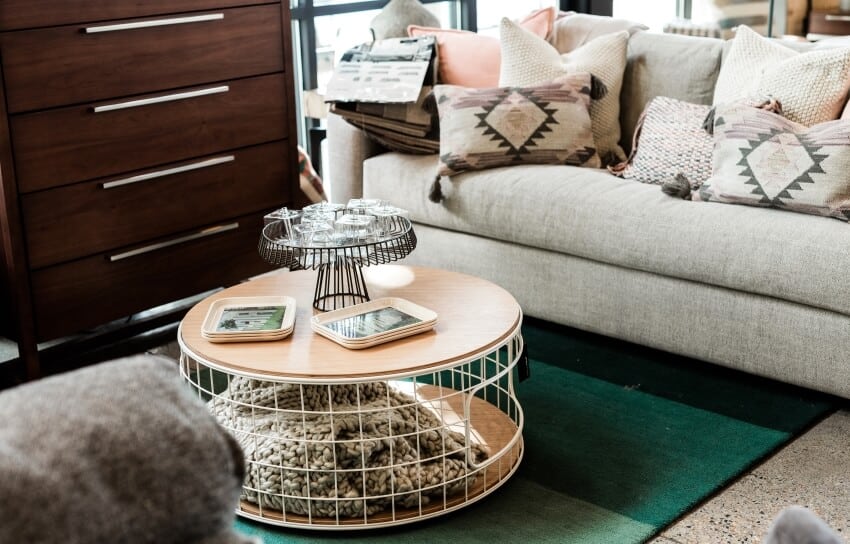
Coastal style is intended to recreate the atmosphere of an inviting, natural seaside home. These objects are frequently made of light-toned wood, have natural curves, and have a more informal vibe than rustic or traditional coffee tables.
Industrial
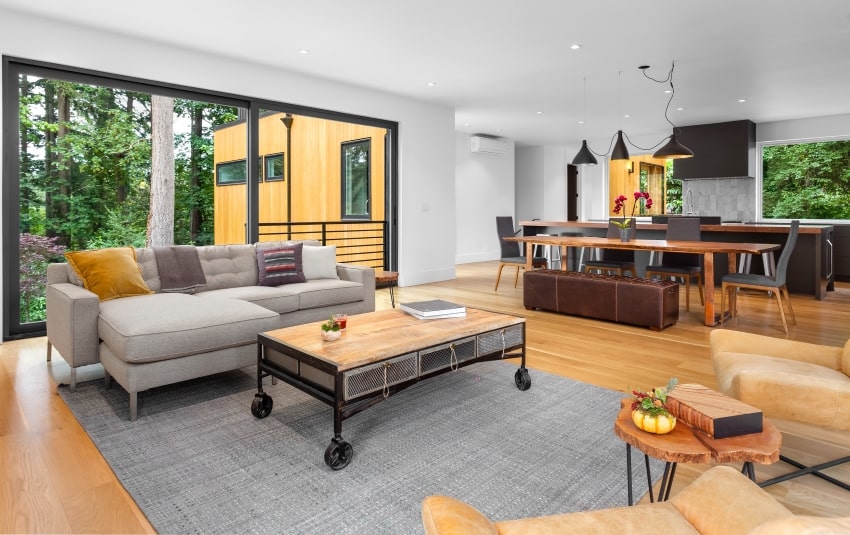
The deliberate appearance and effect of industrial equipment are what’s evoked by the industrial style, which employs steel and wood in a more rough-hewn, durable construction. Industrial coffee tables look well in loft-style living spaces or as a striking counterpoint to a gentler atmosphere.
Table Materials
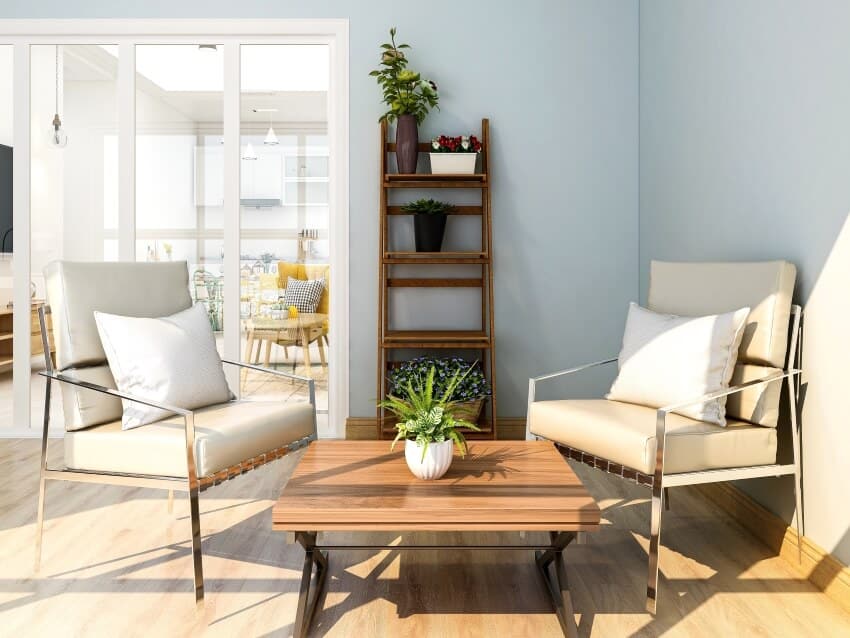
Another crucial factor to consider is the material used in the design of your coffee table. Previously, the only selections were wood or metal, but today’s selections extend much beyond those materials. Current technology allows for an astonishing array of glass, metal, and even acrylic designs.
Wood
Wooden design is the most common structural element of coffee tables. Wood is a multifunctional, warm, classic, and rich material that can be employed in a wide range of forms, styles, and sizes.
Glass
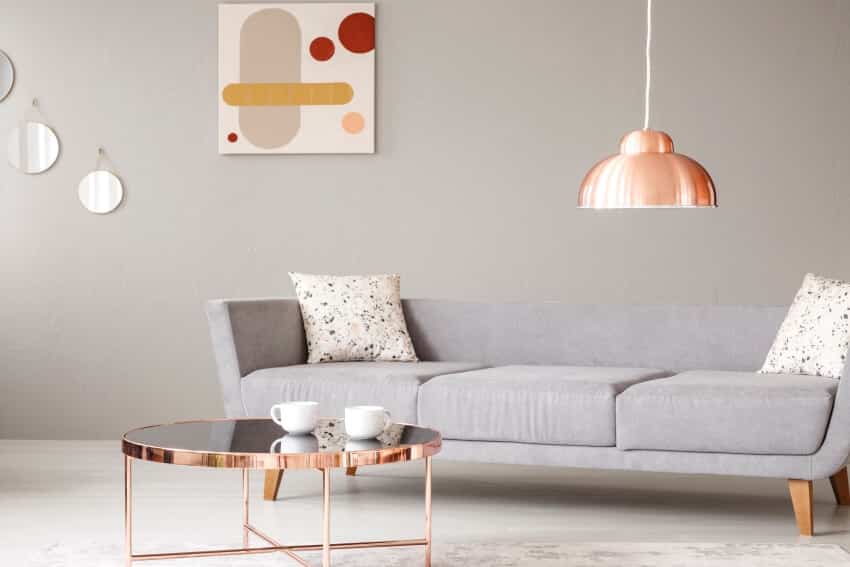
Glass has increasingly gained appeal, with contemporary production enabling diverse, eye-catching patterns that were previously unthinkable. Certain furniture products are made entirely of glass, while others are joined together with metal seams or support systems.
Metal
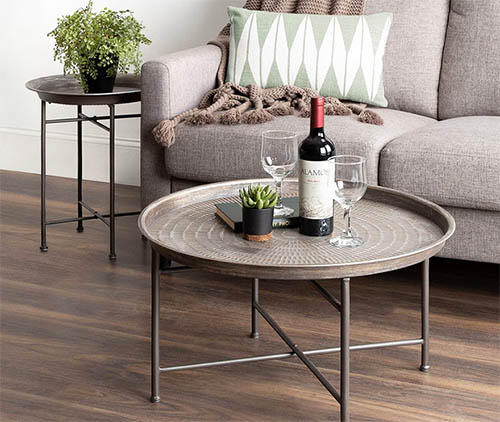
See this hammered metal tabletop on Amazon [sponsored link]
Metal coffee tables are also among the most prevalent types you will come across when browsing. These are durable but lower in weight than standard wooden designs. Metal offers slimmer legs and a supporting framework, and it can be shaped using new methods.
Acrylic
To the bare eye, acrylic looks like glass, yet it has the adaptability and clarity of glass without the cost and weight. These are some of the most contemporary models you can discover, with unique shapes that would look great in any contemporary decor.
Rattan
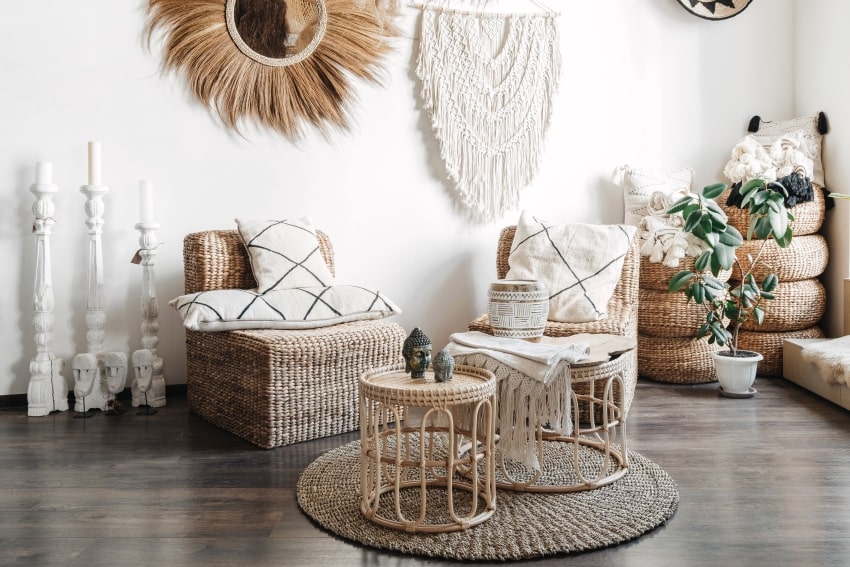
Rattan is also a popular material for outdoor furniture. On the other hand, modern applications of the material enable more elegant, meticulously designed furniture that not only endures the weather but also looks luxurious, giving your house a unique atmosphere.
Types Of Legs
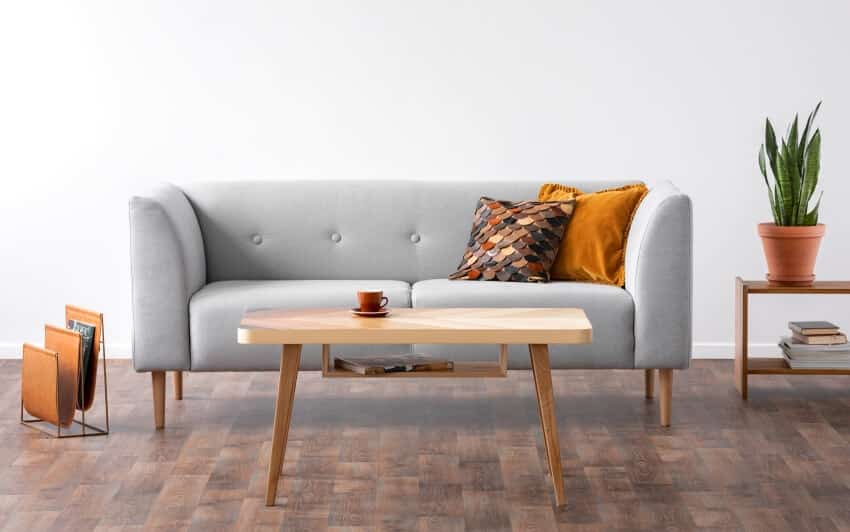
There are numerous types of coffee table legs, the majority of which have a very distinctive appearance that is related to a particular design aesthetic. Choosing the proper leg design can bring a sense of elegance to your living space. Knowing the various types could assist you in getting the most value for money.
Straight Legs
Straight table legs are precisely what their name implies. They are tubular or rectangle legs that protrude down to the floor. They are not tapered at the bottom. They also do not twist.
Moreover, straight legs are an extremely sturdy type of leg and are used in both modern dining areas and workplaces. Although they may appear big, they are actually quite sleek. They are perhaps the most prevalent style of modern coffee table leg you will come across.
Clawfoot Legs
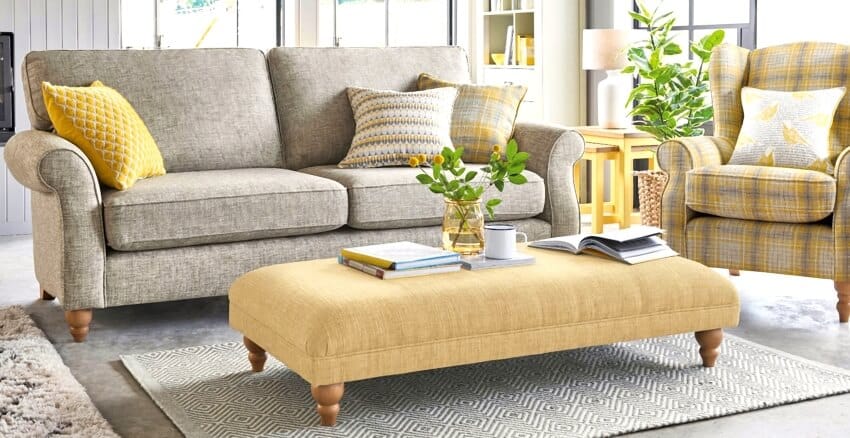
This form of coffee table leg is iconic, reminiscent of France’s Baroque era, but it is still very common for individuals who desire an elaborate and historical aesthetic.
Even though these were popular in ancient times, they can still be purchased in high-end home furnishings stores. Therefore, if you are looking for a touch of European luxury, you are in luck with this style of legs.
Saber Legs
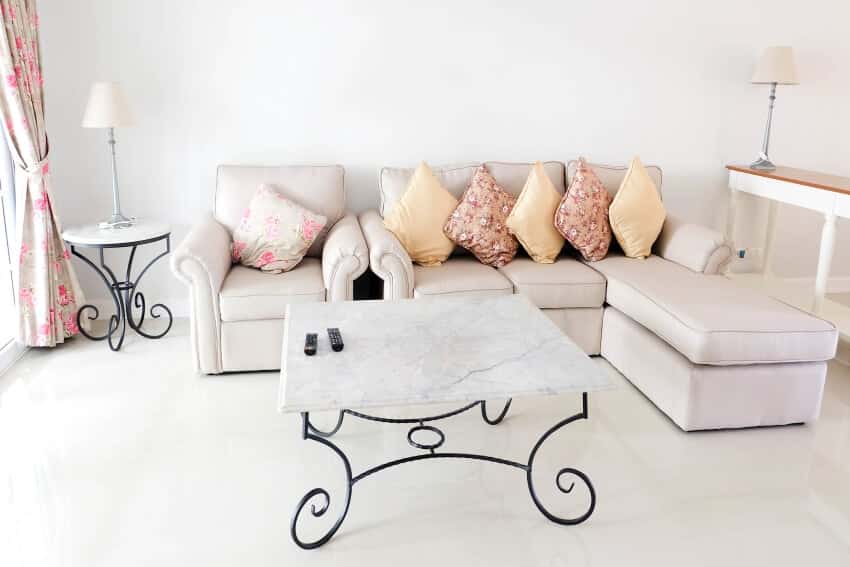
Saber table legs have a modest outward slant to them. Unlike most other common historical legs, these do not typically feature ornate carvings.
Saber legs are also some of the most classic options when it comes to antique furniture. Hence, if you wish to buy an ancient table that can be updated, this would be an excellent leg type to look at.
Cabriole Legs
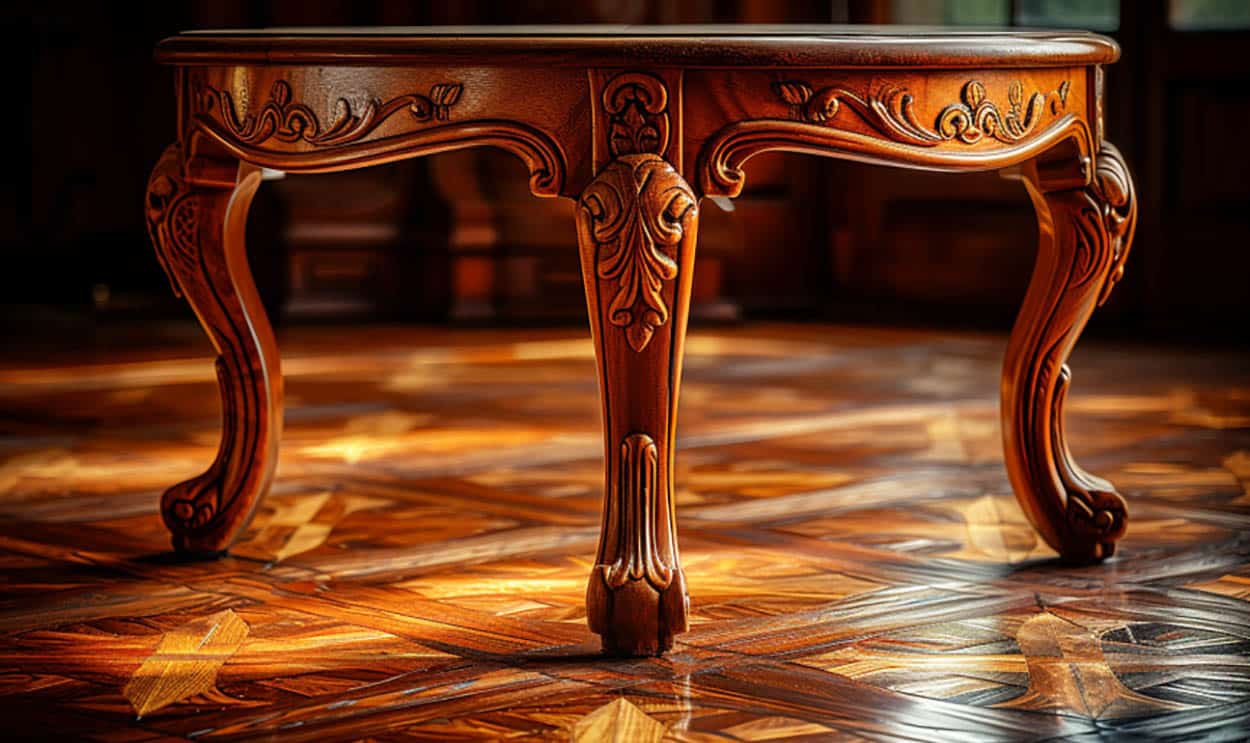
Cabriole table legs are frequently mistaken for saber legs. This is specifically relevant in the case of sturdiness. They are, nonetheless, more dramatic in their particular styling.
Cabriole legs are thicker on top and frequently adorned with lovely embellishments that provide character to the room’s interior design. Because these seem to be quite old-world and elaborate, they often do not fit well with houses that are attempting to create a modern or minimalist ambiance.
U-Shaped Legs
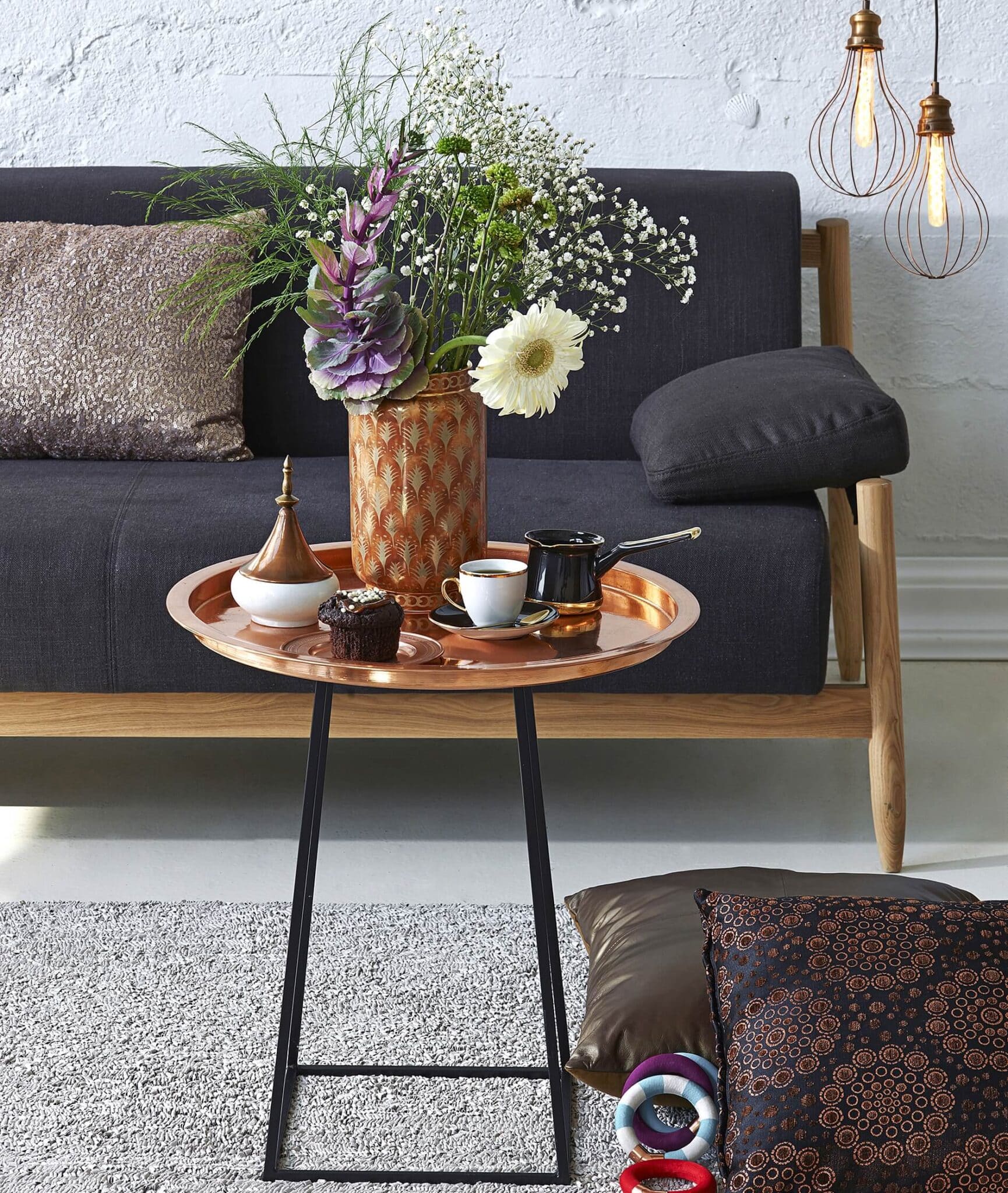
U shaped legs are precisely what their appellation states. They are legs that are linked at the bottom to form a “U” shape.
They are becoming increasingly prevalent among enthusiasts of contemporary and modern home design. They are also suitable for dining tables and are most frequently used for coffee tables and small desks.
Although this form of leg increases your risk of stubbing your toe, it is still quite widespread and provides a great amount of stability. As a result, they operate effectively in places designed to entertain visitors.
Tapered Tilted Legs
This table leg form can be found anywhere in furniture stores nowadays. It is indeed a prominent leg type amongst modern, classic, coastal, and quirky interior designers.
They are quite straightforward. These legs are straight with no associated unnecessary features and a small taper at the end.
Typically, these legs are constructed of timber and have a lighter hue than the table’s surface. They are always placed at an inclination, giving your house a contemporary look.
X-Shaped Legs
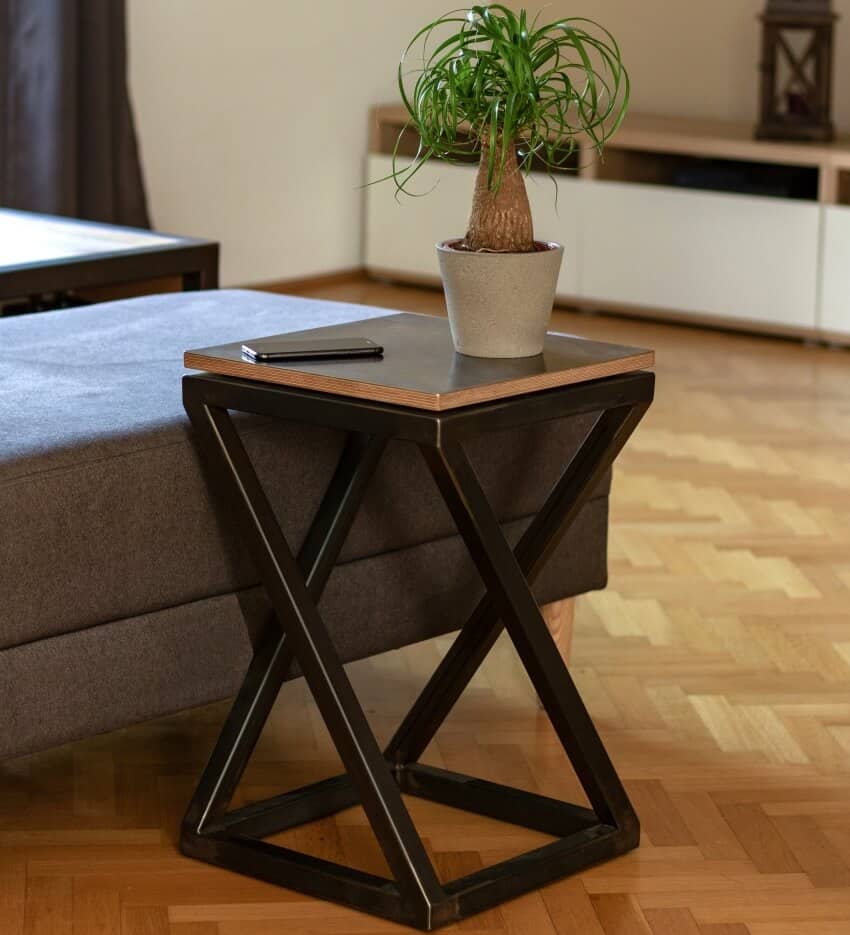
X-shaped legs provide a good amount of stability while also providing a nice curving appearance to your table. As you might expect, this form of leg is quite common in masculine-themed and industrial-style settings.
If you wish to have something in your house that looks like it came from an artistic showroom, you should take into account acquiring a coffee table with X-shaped legs. This might be an excellent option if you need coffee table staging for your home, or just as a conversation piece.
How to Choose A Table Style
When it comes to picking out a coffee table, you’ll want to think about a few key things to make sure it actually works for your living room. Before falling in love with any ol’ table, measure the area you want to put it in – you’ll need enough space so you can walk around it comfortably without knocking your knees! Take into account what you’ll use it for too, whether it’s just drinks or if you want storage for magazines and books.
The shape and size should fit with your sofa and other furniture without sticking out like a sore thumb. A spindly little table might get lost in front of an overstuffed couch, you know?
Make sure to consider materials that match your decor – a glass top can work great for wiping up spills if you have kids, while wood brings a homier vibe. Most importantly, pick something you genuinely like the look of. This is going to be a focal point after all! At the end of the day, find a coffee table that balances what you need functionally with a design you feel good about seeing everyday.


